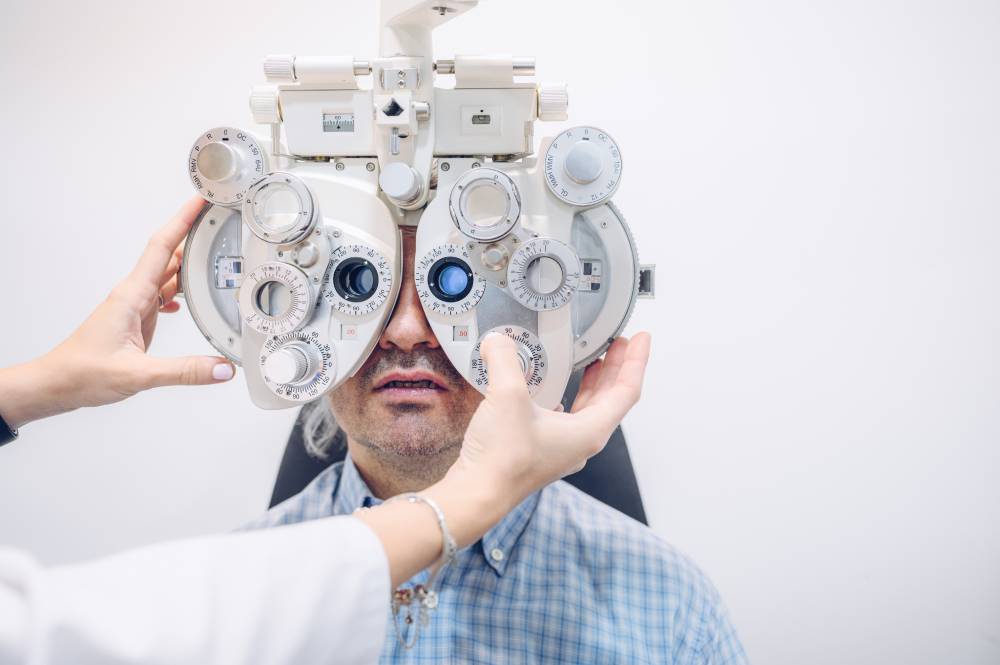Sometimes, you may struggle to see or find that your vision has deteriorated over time. The first step to restoring your vision is to get an eye check – this will give you a baseline of how well your eyes are functioning and what the issue might be. This blog post is by an eye care specialist offering advice on choosing a good optometrist, what to expect during the eye test and more.
Benefits of Eye Tests
There are many benefits to getting an eye test for your vision. A basic eye test can help you identify any issues with your vision and can help you find the best options for corrective eyewear or vision therapy. An eye test can also help you determine if you have any conditions causing problems with your eyesight.
An eye test can show you if you have any near or far sight issues, your ability to see in dim light, or if you might be susceptible to developing a condition like age-related macular degeneration (AMD). An eye test can also help identify other potential health issues, like glaucoma or cataracts.
What are the Causes of Poor Vision?
A variety of things can cause vision problems. Some common causes of poor vision are age, genetics, and eye health problems. Other causes include:
– Aging: The eyesight of people over 50 tends to decline more rapidly than those in their 20s or 30s. This is because the natural lens in the eye begins to lose its ability to create clear images as we age.
– Genetics: Some people have a genetic disposition towards having poor vision.
– Eye Health Problems: If you have any eye health problem, such as glaucoma, macular degeneration, or cataracts, your vision may suffer. In addition, some injuries or diseases can also cause vision problems.
The Importance of Vision Tests
Vision is one of the most important senses we rely on to function daily. Our ability to see clearly and effectively helps us navigate our surroundings and interact with others.
There are many reasons why getting an eye test for your vision is essential, including the following:
- Check if you have any vision problems that may need attention, such as nearsightedness or farsightedness.
- To determine your corrected distance (CD), prescribe a corrective lens if necessary.
3.Treatment may be required to determine if you have any eye diseases, such as glaucoma or cataracts.
4.To find out how long you may need to wear glasses or contacts to see well without them and to determine the type of glasses or contact lenses that would work best for you.
5.Get a general health checkup and learn more about your eyesight to make informed decisions about your lifestyle and daily activities.
Types of Vision Tests
A few different types of vision tests can be done to assess your vision. Some standard tests include
– The visual acuity test: A measure of how well you see at various distances.
– Eye chart test: A series of squares or other patterns presented to you one at a time. You must match each pattern with the corresponding letter on the chart.
How Often Should You Get an Eye Test?
Anyone can benefit from getting an eye test for their vision. Here are five reasons to get one:
To Determine if You Are at Risk for Eye Diseases
A regular eye exam can help you identify potential signs and symptoms of eye diseases so that you can take action before they cause significant damage to your vision.
- To Check for Correctable Vision Problems
If you have any problems with your eyesight that you can correct with glasses or contact lenses, get evaluated by an optometrist. Many vision problems, such as nearsightedness or farsightedness, are easy to fix with these devices.
- To Monitor Your Progress over Time
If you regularly undergo eye exams, your optometrist will be able to track your progress over time and make necessary adjustments to your treatment accordingly. This helps ensure that you maintain clear vision into old age.


 Home
Home









